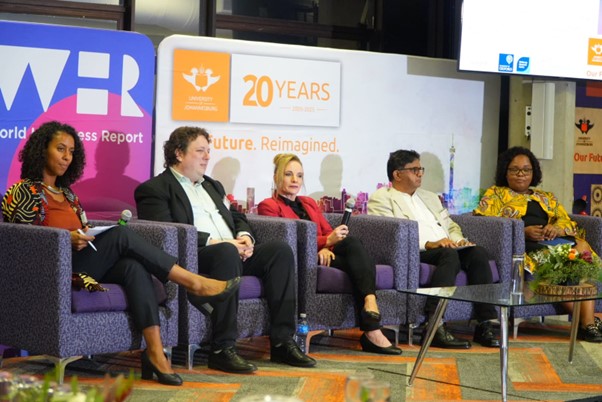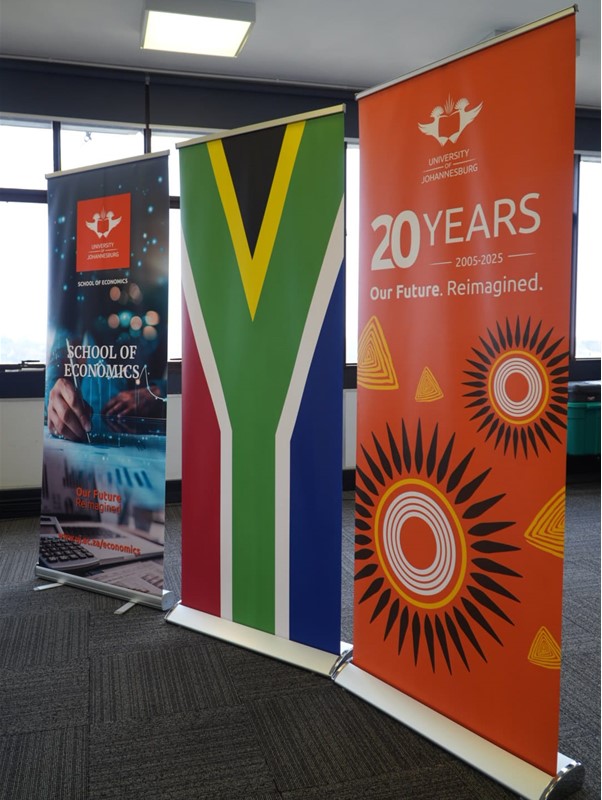Ramolokwane Malebo Ledwaba is a tutor and Masters student at the University of Johannesburg.
On March 20, the world came together to celebrate something that often feels elusive—happiness. But this year was different. For the first time, the annual World Happiness Report (WHR) was launched from Africa, shifting the global spotlight onto the continent’s unique perspectives on well-being.
Professor Talita Greyling from the University of Johannesburg made a profound statement that deeply resonated with me: “Well-being is not only about money; it’s about health, social relationships, education, and much more.” This moment wasn’t just about statistics and rankings; it was a robust recognition that Africa has long understood something that many in the Western world are only beginning to grasp—happiness is about so much more than money. “Africa is a very happy continent because of the culture of Ubuntu”- Prof Talita Greyling.
For too long, mainstream happiness metrics have been shaped by Western ideals—emphasizing personal wealth, economic growth, and material success. But in Africa, happiness has always been about something more profound: community, connection, and shared purpose.
This year’s WHR theme, “Sharing is Caring – Ubuntu,” perfectly captures that spirit. Ubuntu, a philosophy rooted in the idea that “I am because we are,” teaches us that well-being is not an individual pursuit but a collective one. In Africa, people don’t just look out for themselves—they look out for each other.

This sense of interconnectedness has helped communities survive hardships, from economic instability to global crises, proving that happiness flourishes where there is generosity, support, and human connection.
Despite facing significant challenges, Africa continues to shine in areas that contribute to happiness. Studies show that strong social ties are one of the most important factors for well-being, and African societies excel in nurturing family bonds, friendships, and tight-knit communities. Generosity is woven into daily life—people give, even when they have little.
“When we look at the WHR, we can see that benevolence is rising most steadily and reliably in Africa” – Professor John Helliwell. Benevolence refers to the quality of being well meaning and the desire to do good onto other. You don’t have to have the best quality of life to help a stranger.
Spirituality and faith provide meaning and resilience, offering a source of hope in difficult times. These aren’t just feel-good observations; they are powerful lessons for the rest of the world.
Yet, for Africa’s perspectives on well-being to be fully recognized on the global stage, some challenges need to be addressed. One of the biggest hurdles is the lack of comprehensive well-being data across the continent. Traditional survey methods don’t always capture the complete picture of African happiness, often underrepresenting the cultural richness and diverse ways in which well-being is experienced. While conducting a survey, Mr Rashid Seedat observed that many people become defensive when asked about their personal well-being, further making it difficult to get an accurate reading on the overall well-being experienced by South Africans.
New technologies, including big data and machine learning, offer exciting possibilities for filling this gap. But for this to happen, there needs to be more investment in research, more funding for local studies, and a more substantial commitment to ensuring African voices are heard.

What’s more is that since its inception in 2012, the WHR has played a crucial role in urging policymakers to look beyond economic indicators like GDP when measuring societal progress. This year’s launch in Africa sends a clear message: it’s time to listen to the continent’s voices, experiences, and philosophies when talking about what it truly means to live a fulfilling life. “If we work together as a continent we can achieve policy objectives” – Ms Zodwa Mabuza.
A key takeaway from the WHR is the distinction between happiness as a fleeting emotion and life satisfaction as a more profound, long-term state of well-being. In many Western countries, happiness is often seen as an individual pursuit—something to be chased and achieved. But in Africa, happiness is a shared experience deeply embedded in community values. This distinction is not meant to overlook or belittle the societal and socio-economic issues we face as a country and even as the African continent, rather it is meant to show the beauty amidst the adversity. This shift in perspective challenges global policymakers to rethink what progress truly means.
The World Happiness Report advocates that happiness is not only important for the overall wellbeing of people, but also for the economy as it contributes to higher productivity, better health, and stronger social cohesion. Perhaps it’s time to stop measuring success solely in economic growth and start prioritizing well-being as a fundamental development goal.
The University of Johannesburg’s role in hosting the WHR launch is a testament to its commitment to driving meaningful conversations about happiness and well-being. By providing a space for critical dialogue and ground breaking research, the university is helping shape policies that can create real, lasting impact—not just in Africa but worldwide.
This milestone was made possible through the dedicated efforts of the University of Johannesburg (UJ) Library, which hosted the event and reaffirmed its role as a thought leader in well-being research. UJ has been at the forefront of conversations around happiness, resilience, and social cohesion, ensuring that African perspectives are not just included but valued in global discussions. In a world that often looks to the West for definitions of success and progress, UJ is reminding us that Africa has a deep well of wisdom to share.
The launch of the WHR in Africa is more than just a historic event; it’s a call to action. It’s a reminder that Africa’s strength lies in its people, its resilience, and its unwavering belief in the power of community. As we reflect on the International Day of Happiness, let’s embrace Ubuntu as a philosophy and a way of life. If we genuinely want a happier world, we must move beyond individual success and toward a future where well-being is a shared responsibility. And maybe, just maybe, the rest of the world has something to learn from Africa.

*The views expressed in this article are that of the author/s and do not necessarily reflect that of the University of Johannesburg.



